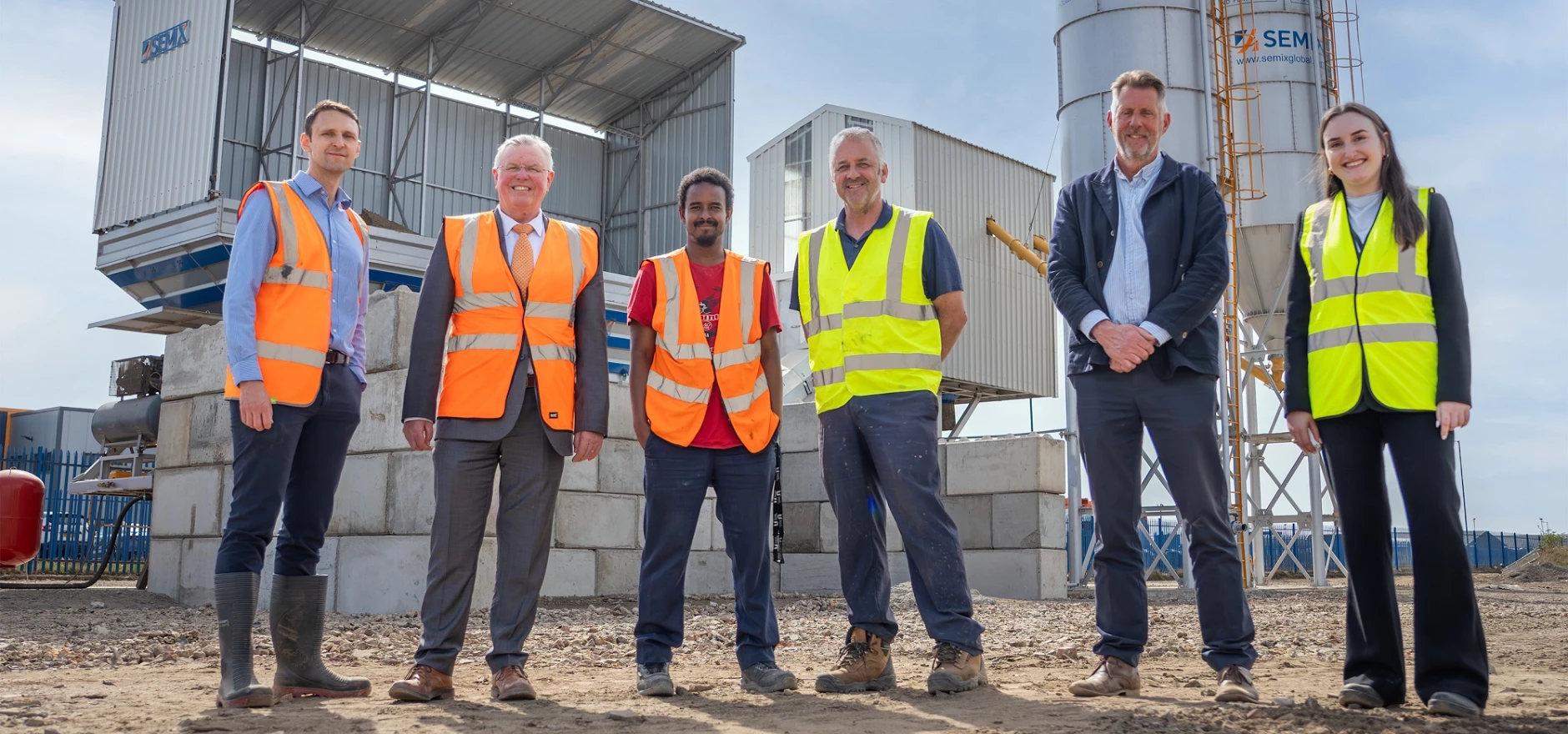
Concrete plans for a greener Teesside
A recycling company is helping to cut carbon emissions in the construction sector with the development of a new “pioneering” low-carbon building material.
Family-run Scott Bros, which is headquartered at Haverton Hill, near Stockton, has unveiled a £1 million concrete plant that uses a sustainable by-product to reduce reliance on carbon-heavy cement.
Working with Teesside University’s School of Science, Engineering & Digital Technologies, the firm, which received a grant of £612,000 from Innovate UK, has replaced up to 25 per cent of traditional binding agent Ordinary Portland Cement (OPC) with ‘filter cake’, a clay-like material recovered from the firm’s wash plants.
Peter Scott, director of Scott Bros, said: “Achieving a 25 per cent reduction in OPC is a significant milestone in our mission to create more sustainable construction materials.
“We're continuing our work with Teesside University to explore further opportunities for innovative, low-carbon alternatives using recycled waste.
“Our long-term ambition is to eliminate OPC entirely and produce concrete made solely from recycled and sustainable materials.”
Joss Newberry, operating and monitoring officer for Innovate UK, added: “Two key aspects of this project really stood out.
“The first is the urgent need to decarbonise the economy, and the second is Scott Bros’ expertise in the recycling sector, strengthened by its long-standing partnership with Teesside University.
“It’s fantastic to see the concrete plant nearing commercial production – a great example of how the innovative use of waste materials is helping drive progress towards net-zero goals.”
Following a commissioning phase, the plant is now producing concrete blocks and is set to begin full-scale output in May, with capacity to manufacture more than 480 cubic metres per day using recycled aggregates.
Research is continuing to explore even greater reductions in OPC content, as Scott Bros and the university develop further eco-friendly alternatives.
Professor David Hughes, associate dean (research and innovation) at Teesside University’s School of Computing, Engineering and Digital Technologies, added: “This new facility marks a major milestone in the journey from academic research to real-world application.
“It’s the culmination of seven years of collaboration with Scott Bros, transforming waste materials into valuable, low-carbon construction products.
“Together, we’re helping to build a more sustainable future – one where innovation and environmental responsibility go hand in hand.”
Looking to promote your product/service to SME businesses in your region? Find out how Bdaily can help →
Enjoy the read? Get Bdaily delivered.
Sign up to receive our daily bulletin, sent to your inbox, for free.








 When will our regional economy grow?
When will our regional economy grow?
 Creating a thriving North East construction sector
Creating a thriving North East construction sector
 Why investors are still backing the North East
Why investors are still backing the North East
 Time to stop risking Britain’s family businesses
Time to stop risking Britain’s family businesses
 A year of growth, collaboration and impact
A year of growth, collaboration and impact
 2000 reasons for North East business positivity
2000 reasons for North East business positivity
 How to make your growth strategy deliver in 2026
How to make your growth strategy deliver in 2026
 Powering a new wave of regional screen indies
Powering a new wave of regional screen indies
 A new year and a new outlook for property scene
A new year and a new outlook for property scene
 Zero per cent - but maximum brand exposure
Zero per cent - but maximum brand exposure
 We don’t talk about money stress enough
We don’t talk about money stress enough
 A year of resilience, growth and collaboration
A year of resilience, growth and collaboration